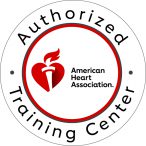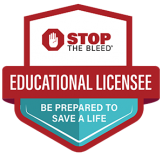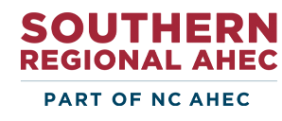EMERGENCY CARE AND SAFETY INSTITUTE
First Aid CPR AED
The ECSI, CPR, AED, and First Aid class is intended for those wanting to learn about basic life-saving skills and techniques to deal with acute emergencies. It covers CPR and AED, as well as First Aid. First Aid topics can include bleeding control, splinting, and chest pain and can be tailored to your group's needs.
Emergency Medical Responder
Based on the National EMS Education Standards and endorsed by the American Academy of Orthopedic Surgeons, Emergency Medical Responder clearly and concisely covers every competency required of students embarking on this vital EMS role. Using clear, accessible language and proven pedagogical features designed for first responders with limited medical training, the course prepares law enforcement personnel, firefighters, rescue squad personnel, athletic trainers, college students, and laypersons for the medical emergencies they may one day face in the field.
Wilderness First Aid
When faced with an injury or sudden illness in a remote location it is critical to know what to look for and how to respond. This course is a comprehensive guide that illustrates how to handle common injuries and illnesses when medical care is an hour or more away. A must-have course for outdoor recreationists and those who live or work in remote locations. It will prepare you to make essential decisions and implement the appropriate procedures.
Basic Life Support for Healthcare Providers
During the course, students will learn how to recognize and respond to cardiac and respiratory emergencies, including how to perform high-quality CPR and use an automated external defibrillator (AED). They will also learn how to manage choking emergencies and provide basic life support in special situations, such as for infants and children.
Pet First Aid/ Disaster Response/CPR
The Pet First Aid & Disaster Response Course is designed to help pet owners provide temporary, urgent care to pets until they can reach a veterinary or emergency clinic. The course will teach students to care for their animals before, during, and after an emergency.
Bloodborne and Airborne Pathogens
Designed to meet the current Occupational Safety and Health Administration (OSHA) training requirements, Bloodborne and Airborne Pathogens is designed to teach students and employees how to prepare for potential occupational exposure to blood or other potentially infectious materials.Bloodborne and Airborne Pathogens also include supplemental information on airborne pathogens, such as tuberculosis, and other unusual infectious diseases.
Sports First Aid & Injury Prevention
When athletes become ill or injured during practice or competition, coaches and athletic trainers need to know how to respond. Whether on the court, on the field, at the pool, or in the gym, coaches, and trainers must be prepared to handle the common injuries and illnesses they will likely encounter while coaching their sport.
Advanced First Aid CPR AED
Advanced First Aid, CPR, and AED, Eighth Edition course materials are ideal for use within college-level courses designed to train individuals in first aid, CPR, and AED. The course features current content on topics from CPR skills to opioid emergencies to COVID considerations and precautions. To simplify training, the text focuses on the most vital lifesaving skills, so participants have clarity on how to respond to common emergencies like cardiac arrest, choking, life-threatening bleeding, anaphylactic shock, and strokes.
Hours
Monday – Thursday | 8 a.m. – 5 p.m.
Friday | 8 a.m. – 2 p.m.
Closed the first work day of each month for audits.
Item pick up by appointment only.
Contact
trainingcenter@sr-ahec.org | 910-678-7286




